
Regular readers of this blog will know that I’m in the habit of posting birthday greetings to my favourite actresses in the form of triptychs of unapologetic cheesecake shots. These posts are normally cobbled together at a moment’s notice. They stem from a nightly ritual myself and Mrs F engage in. Based on IMDb’s “born today” section, we raised a glass to our favourite actors, actresses, directors, writers or cinematographers. And why the hell not? A shared love of films and books helped to bring us together.
So imagine the scene: we get home from work, fix a meal (a fillet of salmon cubed and stir-fried with seasonal vegetables and served with boiled rice), settle in for the evening, Paula fires up the PS3, yours truly fires up the internet … OMG, it’s Stephen King’s birthday. I had nothing planned for The Agitation of the Mind, but goddamn it if Stephen King wasn’t one of the crucial authors who really tripped me to reading when every shitty bone-dry text we read at school was trying to achieve the opposite.
I’ve always loved stories and the written word, but what those doofuses laid on me at school could have killed it stone dead. I owe my continued love of literature to three very diverse writers, without whom I could have all-so-easily tuned out: Hammond Innes (after devouring my dad’s Alistair MacLean collection, I turned to Innes and discovered that a tense thriller could be imbued with a genuine literary talent and an evocative sense of place), Alan Sillitoe (the pages of whose novels could have been inhabited by my dad and my granddad), and Stephen King.

The first Stephen King novel I read was ‘Christine’. I was fifteen. ‘Christine’ – a novel about cars, girls and rock ‘n’ roll – is the perfect novel for a fifteen year old. The doors of perception opened. King started every chapter with a quote from a classic golden oldie rock ‘n’ roll song. The nerd was made cool by a cool car. The bullies bought the farm – in gory style. Colour the 15-year-old me hooked. Even today, now I’ve had my ups and downs with King (my non-ownership of a crowbar is the only reason ‘The Dark Tower Volume 7’ is still in one piece; I gave up on ‘Lisey’s Story’ 200 pages in; I wish I’d been granted editing duties on ‘Dreamcatcher’ and been allowed to reduce the first 20 pages to two paragraphs), the appearance of a new King novel – or, better still, collection of short stories (‘Full Dark, No Stars’, the big man at his best in over a decade, oh thank you Lord, praise God, hallelujah) – is something to get excited about.
All of which is a roundabout way of saying that I felt the need to mark the occasion. I slung ‘Christine’ in the DVD player, watched it, and gave myself an hour to write a (pardon the pun) hit-and-run review. The first time I saw ‘Christine’, about three years after I originally read the book, I hated it. I hated the production line prologue that ham-fistedly explained the car’s bloodlust. I hated the reduction of Roland LeBay’s part in the story to a couple of minutes of ornery exposition. I hated the “god, I hate rock ‘n’ roll” ending. I hated the jettisoning of King’s (admittedly unfilmable) ending, seven or eight lines of prose that still send a shiver down my spine.
Later, approaching it as a fully-formed cineaste, and judging it as a John Carpenter film rather than a Stephen King adaptation, I still found it hard to love, as it came way down on the list of “John Carpenter films I’d rather be watching than doing anything else” – it came way, way lower than ‘The Thing’, ‘Halloween’, ‘The Fog’, ‘Assault on Precinct 13’, ‘Dark Star’, ‘They Live’ or ‘Big Trouble in Little China’.
In fact, I didn’t reach a full appreciation of ‘Christine’ until I saw Frank Darabont’s third King adaptation ‘The Mist’. I already had a built-in appreciation of that movie: King’s description, in the introduction to ‘Skeleton Crew’, of ‘The Mist’ as having “a cheery cheesiness – you’re supposed to see this one in black-and-white … with a big speaker stuck in the window. You make up the second feature.”
Sure, ‘Christine’ the novel has a sophisticated structure and narrative complexities which allow the author to explore the thin line between passion and obsession, ownership and possession (to quote the tagline on the cover of my copy of the NEL paperback), but when you boil down the essential elements of the story to their base metals, you get the very trinity that appealed to me over twenty years ago: cars, girls and rock ‘n’ roll.

As Darabont tapped into the B-movie aesthetic of King’s fiction in ‘The Mist’, so did John Carpenter two decades earlier with ‘Christine’. Darabont rode the wave of a resurgence of the horror genre that alternated between post-modern irony and straight-faced throwbacks to the 70s. Carpenter, as with so many of his films, was ahead of his time and thus underappreciated. ‘Christine’ is a B-movie through and through, albeit with its tongue in cheek in the right places. But not all the time. Uh-huh. There are moments in Carpenter’s film that are as wrenching as its source material: Arnie Cunningham (Keith Gordon)’s familial rows; Dennis (John Stockwell)’s cringingly embarrassing attempt to hit on new schoolgirl hottie Leigh (Alexandra Paul) in the library; Arnie’s maltreatment at the hands of flick-knife wielding bully Buddy Repperton (William Ostrander).
Where Carpenter misjudges is in Gordon’s characterization of Cunningham. In the early scenes, he’s just too nerdy. His friendship with Dennis never convinces. Likewise, Repperton and his entourage come off not so much as a genuinely threatening cluster of antagonists as a borderline camp ‘Grease’-stylee approximation of bad boys, as if someone had decided to cast John Inman, Julian Clary and Alan Carr as dangerous types.
Elsewhere, though, Carpenter absolutely nails it, keying the film into the aesthetic of Americana – high school, auto shop, football games, drive-in movies, diners – that define the novel. Also, he rocks the finale. For a man who’s never made a western, Carpenter has drawn upon the tropes of the genre time and time again. ‘Christine’ posits its Caterpiller digger vs demon car smackdown in the unambiguous terms of white hat vs black hat, sheriff vs outlaw, good vs evil. The saloon has been replaced by a rickety garage, main street by a scrapyard, the good guy’s Smith & Wesson by a lumbering, chugging piece of heavy plant. The differences are merely generic. The stakes and the outcome are the same.
‘Christine’ is a film I’ve come to love over the years, despite its flaws, and despite its divergences from what is still one of my favourite Stephen King novels. And there is a lot to love about it: the pre-CGI set piece where Christine effects an act of self-renovation; the various dispatchings of Arnie’s antagonists; Robert Prosky’s magnificently curmudgeonly turn as phlegmatic garage owner Darnell; Dean Stockwell’s brief but effective appearance as a detective slowly linking the trail of mayhem; and the beautifully chosen repertoire of 50s and 60s rock ‘n’ roll songs which provide Christine with her psychotic soundtrack.
And then there’s Christine herself. The automotive equivalent of Angela in the ‘Night of the Demon’ movies: sexy and deadly in roughly equal measures. I don’t know if the Plymouth Fury they used in the film (one of several, given the amount of damage inflicted) even had a name – it sure doesn’t get a credit – but that chrome-laden, snarling-grilled, whitewall-tyred piece of fuck-off awesome engineering gets my vote as one of the great horror icons of all time.


Say what you like about where ‘Christine’ gets it right and/or gets it wrong, when you’ve got a 1950s muscle car in flames chasing someone down to their screamingly hideous demise, what the hell else do you want?
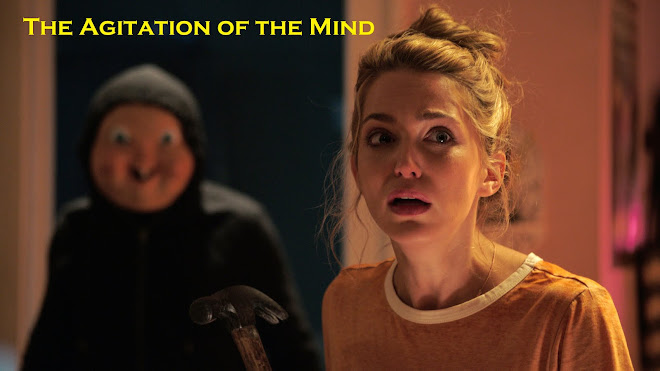
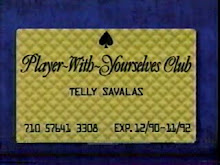
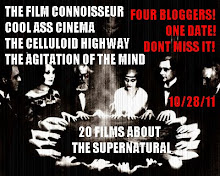
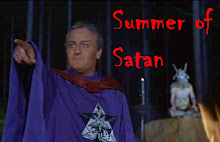
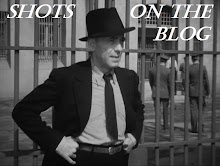

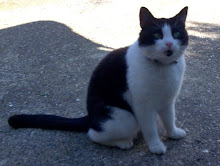








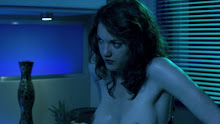
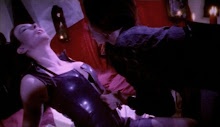





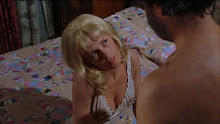
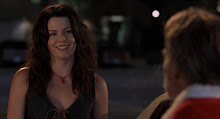








4 comments:
Very nicely done tribute good sir. King stoked my love of reading as well, I know exactly what you're talking about. That elicit charge that even the least of his early novels gave, well that's the sort of thing that keeps you coming back for life. (And man do I share your love for Full Dark. That book made me want to run around giving copies to strangers. Especially since Under The Dome got trumpeted as his big "comeback novel." To me that thing fumbled in the last two hundred pages)
I'm not sure that i'll ever like the film adaptation of Christine all that much. I've always found the movie strangely sloppy (My favorite bit is when Harry Dean Stanton shows up in the last scene and solemnly tells the kid's that they're "heroes" having never shared a scene with them before. I kept waiting for one of them to turn and say "And who the hell are you?"), and frankly post Death Proof the car scenes aren't all that impressive save for the final one. You don't really see anyone get run down. It has it's moments, but for me it's either the least of Carpenter's second tier or the best of his third.
Thanks, Bryce. Having devoured 'Full Dark' with all the pdassion that early King roused in me, I bought a copy for a friend to celebrate her promotion at work. Two days later she texted me in the early hours with the message: "Just finished Full Dark No Stars. King back at his best!!!" (Same friend is wondering whether she'll even finish 'Under the Dome'.)
The one utterly puzzling thing I don't understand about 'Christine' the film is why my DVD is rated 18. No nudity, very little violence (unless we're talking hoodlum-on-car violence, then it's pretty graphic) and maybe a couple of instances where Cunningham gets called "Cuntingham". An 18 certificate for that?
Alistair MacLean and Hammond Innes certainly done there bit in my literary education as a teenager! Just lke you they filled in the space from the crap we read at school.
But Stephen King always left me cold. I haven't read a novel of his in 20 years. The Stand being the last one. It is an example of horses for courses isn't it?! I think that with horror being a genre I don't really get into may have something to do with it as I don't read other horror writers either.
I've read Christine and didn't think much of the film adaptation as I remember it.
What I like about Stephen King - at least in the early phase of his career - is his ability to spin a yarn in that deceptively simple, almost conversational style, as if he were recounting a spooky tale around the campfire.
His later works, I find, suffer from a slightly verbose tone and a tendency to stop the narrative dead just to pin down the minutiae of a scene. A good example is the opening of 'Dreamcatcher' where a hunter almost shoots at what he thinks is a deer, stopping in just enough time to realise that he's actually seen the orange cap of a fellow hunter and not, as he thought, the russet coat of the deer. It's a scene most writers would deal with in a page, maybe a page and a half. King elaborates it to nearly ten pages.
Of his most recent work, it's the short story/novella collections I've enjoyed the most - 'Everything's Eventual', 'Just After Sunset' and (particularly) 'Full Dark, No Stars'. If you were tempted to approach another volume of Stephen King, I'd recommend any of these.
Post a Comment